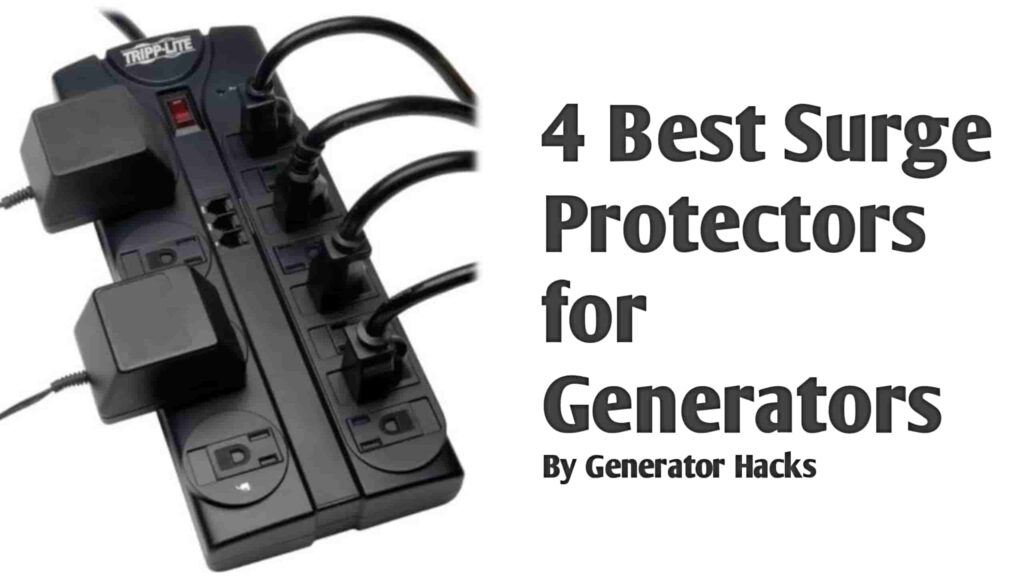As an Amazon Associate, we earn from qualifying purchases. This does not affect the price you pay or the quality of the products you buy. For more information, please read the full affiliate disclosure here.
When you use a generator and add more load to it, it means that you are asking it to power more devices or appliances. As a result of this additional load, your generator will start to experience some changes.
Firstly, the voltage supplied by your generator will drop by 20%. This means that the power supply to your devices will be weaker and might cause them to malfunction or not work at all.
Secondly, the speed of your generator will be forced to increase by 10% to keep up with the extra power demand. This increase in speed can cause more wear and tear on your generator over time, which might reduce its lifespan.
It is important to note that if you continue to overload your generator, it might get damaged and stop working altogether. Therefore, it is best to ensure you don’t exceed the maximum load capacity of your generator to avoid any potential damage.
Henceforward, to avoid overloading your generator, this article explains what generator load is and how you can run your generator with high or low loads.
What is Load In Generator?
Generator load is the amount of appliances your generator powers. These include things like refrigerators, cookers, televisions, air conditioners, and many more to be listed. In other words, Generator loads are anything used with electricity that you want to power with your generator.
However, most individuals don’t know how their generator works and the amount of load they should be powered with. And this had caused many generators especially its alternator coil to be damaged beyond repairs.
A generator is meant to power appliances at a normal speed, but when it comes to loading the generator to a high load above the required level, generator owners will be forced to increase the speed limit of their generator so it will be able to power the loads.
At this stage, the speed will decrease, but when the loads are unplugged, it will increase destroying anything that isn’t powerful enough that is plugged into the generator. Lastly, for a generator to last long, ensure you don’t increase the speed to power your equipment or ensure you don’t overload your generator.
Does Load Affect Generator Fuel Consumption?
Yes, the load does affect generator fuel consumption. The amount of fuel your generator needs to consume at the normal load rate will be increased by 10% when you decide to add more loads or appliances to it.
For instance, you bought a portable generator to power necessary appliances, but there’s a need for you to iron your clothes because of a power outage you decide to use your generator. When you plug in your iron, there will be a power jack, a decrease in speed, and also a decrease in voltage.
So, if the generator isn’t powering the iron properly, there’s a need for you to increase the generator, causing it to work more than it should, which will result in burning more fuel than it should. But in most cases, if the generator doesn’t receive the necessary fuel it should have taken, then it will start developing faults, for instance removing black smoke from the exhaust.
In addition, loading your generator all depends on the type of generator you are going for, if you want to power a high load, go for bigger generators like the standby generators.
Will Overloading A Generator Damage It?
There’s no way you overload your generator that you won’t increase its speed and fuel consumption. However, apart from these, there are still chances that overloading it might cause the generator to be damaged.
Hence, here are a few things that could happen when you overload your generator.
1. Your Generator Might Trip Off
When you add more loads to your generator than the required load needed, your generator might trip off because the loads on the generator have more power than what’s recommended by the manufacturers. And in most cases, this leads to the damage of your generator. However, sometimes, the circuit breaker would be the one to break off, and this usually happens when there’s an increase in speed.
2. Reduced Your Generator’s Lifespan
A generator that is supposed to have a lifespan of 20 years or more might be forced to reduce its lifespan to 10 years when being overloaded. This is a result of the generator overworking than how it’s supposed to work.
For instance, your generator might start removing white smoke in a short period. Let’s say a normal generator is supposed to be used a year before smoking, but when overloaded it will be used approximately six months before starting to emulate white smoke.
In some cases, the generator is damaged when existing for a certain period. At this time, the generator will develop different problems that will make it hard for your generator mechanic to fix it.
3. Engine And Alternator Overheating
Your generator might result in a fire if your engine and alternator start overheating. The overheating especially from the alternator is mostly caused when you overload your generator.
Your generator alternator is forced to perform a function it wasn’t designed to do which is powering appliances higher than the recommended appliance. As for the engine, it might overwork in less than, which can also cause it to have a reduction in lifespan.
4. Unpredictable Engine Failure
When a generator is overloaded, there might be an unpredictable engine failure. This may be as a result of the generator losing control of its governor, its connecting rod from the engine crankcase loose or breakdown, or verve losing its pressure.
5. Oil Breakdown
Lastly, your generator oil can break down when working when you overload your generator daily. For instance, oil can decide to escape from places it should be and might end up causing your generator to stop working.
In addition, your generator might end up causing a lot of noise when being overloaded. And if you are the kind of person that doesn’t like noisy generators, it’s advisable you allow it to run at a normal speed while working, and not overload it.
Final Thought
An increase in the load of your generator can cause your generator to slow down, and as a result, also cause more damage to it. For instance, your generator tripping off, lifespan reduction, and also cause your generator to start making more noise than it should.
So, in as much as you need to power your appliances, which might be too much for your generator; you can try to get a better one that can take in the load without disturbing the generator. That’s why it is important you know how to pick the best generator before going for any, to avoid issues like overloading and fuel consumption.
Share


